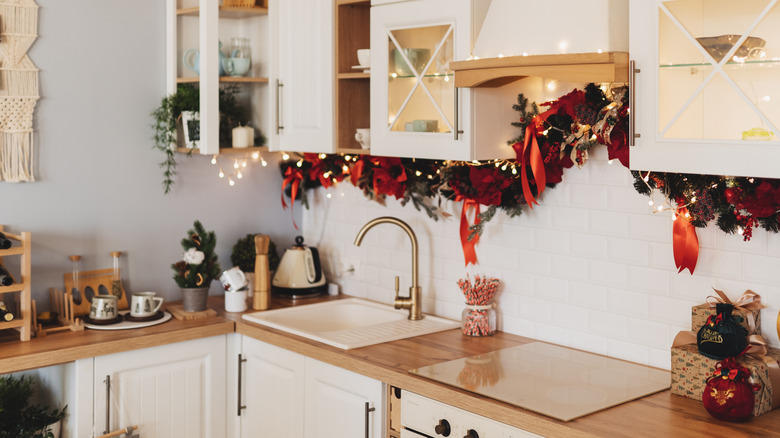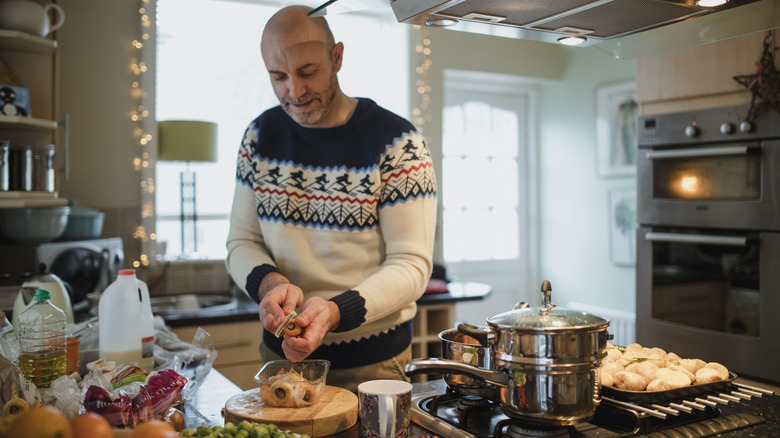How To Stay On Top Of Cleaning Your Kitchen During The Busy Holiday Season
For all the fun and frivolity of the holidays, hosting loved ones and preparing a massive feast takes a lot of work. Much of this work lies in cleaning your whirlwind of a kitchen after cooking a multi-course dinner, which can feel like an endless chore. Essential kitchen cleaning hacks, such as using baking soda and vinegar solution to clean your oven, can make your life easier, but holiday cleaning is another beast altogether. That's why we spoke with Katie Dills, Brand President of The Cleaning Authority, on how to best maintain your sanity when faced with holiday cleaning.
Dills exclusively told Mashed, "A common mistake people make is not cleaning the kitchen as they go, which leads to a mountain of work at the end of the day." To prevent this, Dills suggests taking a proactive approach. "Be sure to clean up after every meal or cooking session, even if it's just a quick wipe-down," shares the cleaning authority, as this will greatly reduce the need for extensive cleaning later. Spot cleaning will keep you on track, but Dills recommends also making time for daily deep cleaning. While she doesn't name any specific tasks, scrubbing cookware immediately comes to mind. In this case, you can use coffee grounds to clean pots and pans, as their abrasive nature effectively removes stuck-on food debris.
A well-organized kitchen is a clean kitchen
Katie Dills also highlights the importance of kitchen organization when it comes to efficient kitchen cleaning during the holidays. "Keep things organized by having designated areas for holiday prep items and storing things away as you go," states Dills, as doing so "prevents the kitchen from becoming a disaster zone during busy cooking times." When it comes to your pantry, try to group similar items (such as keeping baking essentials in a single place) to make it easier to retrieve what you need. One helpful pantry organization trick entails relocating dry goods to clear containers to ensure the contents can be easily identified. Just be sure to label containers with names and expiration dates.
Creating kitchen zones will also help you heed Dills' organizational advice. For instance, the prep zone is where you'll dice vegetables and season raw meat (just make sure you avoid cross-contamination), while the serving zone is where you'll place completed items so they can be picked up by guests. A cleaning zone for dirty dishes and utensils is also helpful. Along with enhancing organization, a cleaning zone also gives you an idea of how much work you'll have left at the end of the evening. However, when you follow these expert tips from Dills, your cleaning zone will probably be mercifully small.

